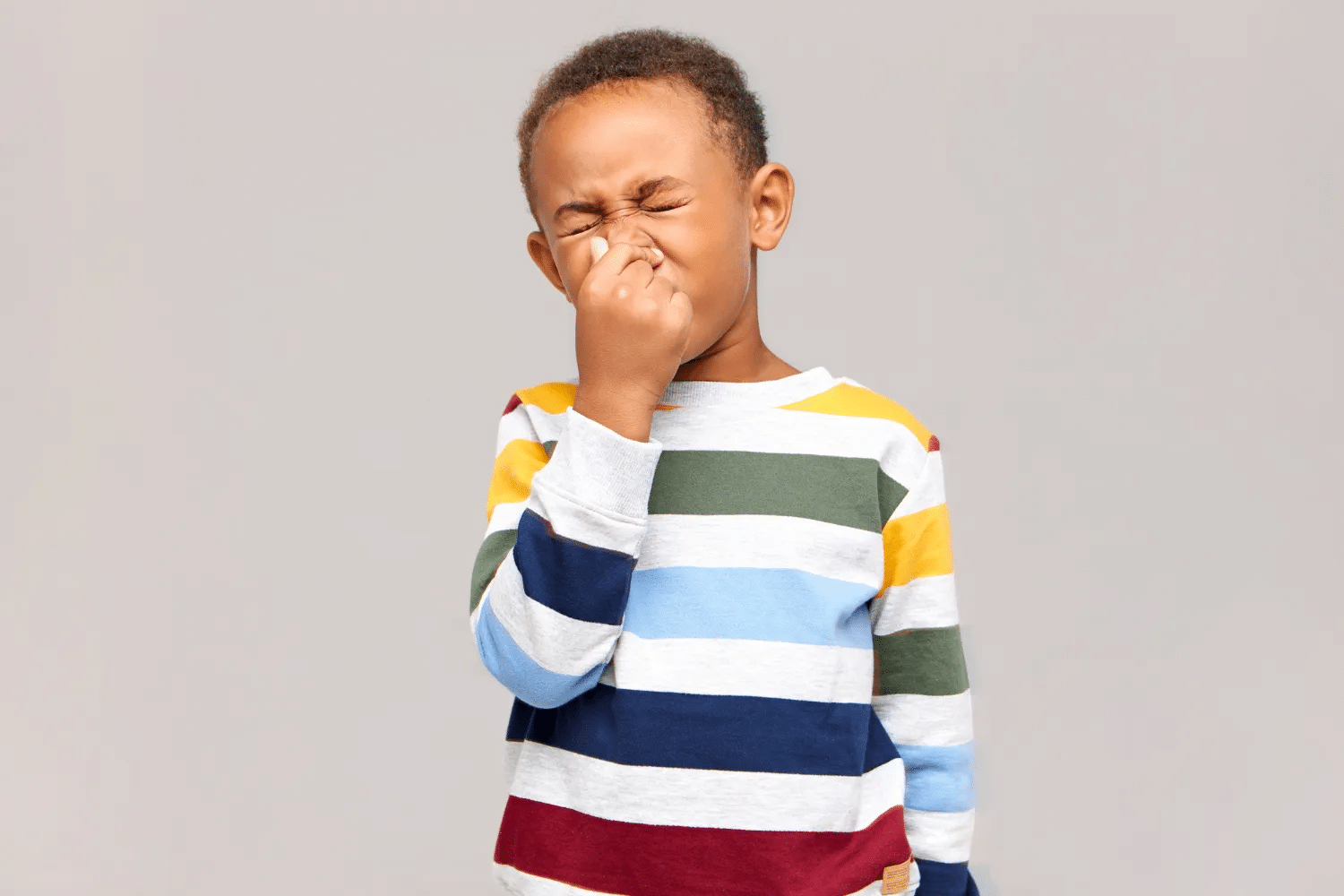Imagine a world where everyday odors are intensified, transformed into an overwhelming overload on your sensory system. While it can be difficult for us to understand, many children with autism face an oversensitivity to smell every single day!
Heightened smell sensitivity in autism is very common. Often referred to as olfactory hypersensitivity, smell sensitivity autism can significantly affect your child’s quality of life.
Our sense of smell, or olfaction, is a complex relationship between our nose and the brain. Tiny sensory receptors in the nasal cavity capture odor molecules, transmitting signals to the brain for interpretation. In children with autism, this process can be altered, leading to a heightened sensitivity to smells.
How To Identify Olfactory Hypersensitivity in Children
For many children with autism, familiar scents can become overwhelming, and previously unnoticed odors can be intensely distressing. This heightened sensitivity can come in many forms, from mild discomfort to severe distress.
Even simple activities like grocery shopping or dining out can become daunting or even impossible when dealing with smell sensitivity in autism, which can impact not only your child but your entire family.
Olfactory overload can trigger a cascade of challenges such as:
- Anxiety
- Frustration
- Sensory Overload
- Meltdowns
- Avoidance Behaviors
- And More
How to Address This Challenge
These reactions are not intentional but rather a result of an overstimulated nervous system. Understanding and addressing smell sensitivity is crucial for improving the quality of life for children with autism, and several strategies outside of ABA therapy can help manage these challenges, such as:
Create Scent-Free Environments
Minimize the use of perfumes, colognes, and strong cleaning products in your home to reduce reaction to smell sensitivity autism.
Open Communication
Encourage your child to express their discomfort with certain smells, so you have a better understanding of triggers.
Sensory Tools
Weighted blankets, noise-canceling headphones, or fidget toys can help manage sensory overload.
When these strategies do not work, or you just need a little extra support, that is when you should turn to ABA therapy for smell issues.
The Role of ABA Therapy
ABA therapy offers a structured approach to addressing behavioral challenges associated with autism, including those related to sensory processing. By developing individualized treatment plans, ABA therapists can help your child learn to manage their reactions to overwhelming smells and improve overall quality of life.
Comprehensive ABA Therapy for Children with Smell Sensitivity
At Harmony Behavioral Health, we understand the unique challenges faced by children with autism, including sensory sensitivities. Our team of experienced professionals offers comprehensive ABA therapy for smell issues tailored to meet individual needs. We are committed to helping children with autism develop the skills they need to manage smell sensitivity in autism, learning how to live, grow, and thrive.
If you or someone you know is struggling with smell sensitivity, reach out to us today to learn more about ABA therapy! Together, we can create a personalized treatment plan to address your child’s specific needs and improve overall well-being through ABA therapy for smell issues!








